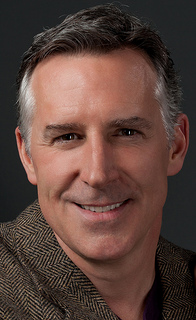Forget Something? It’s on the Tip of Your Tongue!
February 1st, 2023

Let’s see…
Toothbrush? Check.
Fluoride toothpaste? Check.
Floss? Check.
Two minutes of thorough brushing? Check.
Careful cleaning around your brackets and wires? Check.
Wait… there’s something else… it’s right on the tip of your…
Ah! Your tongue! Whenever you brush, morning, evening, or any time in between, if you want the freshest breath and cleanest teeth, don’t forget your tongue.
Why your tongue? Because the tongue is one of the most common sources of bad breath. Let’s examine just why this occurs.
The tongue is made up of a group of muscles that help us speak and chew and swallow. But there’s more to this remarkable organ than mere muscle. The surface of the tongue is covered with mucous membrane, like the smooth tissue which lines our mouths. But the tongue isn’t completely smooth—it’s textured with thousands of tiny bumps called papillae.
These little elevated surfaces have several shapes and functions. Some make the tongue’s surface a bit rough, which helps move food through your mouth. Some are temperature sensitive, letting you know that your slice of pizza is much too hot. And some are covered with thousands of the taste buds, which make eating that pizza so enjoyable.
All of these papillae with their various functions combine to create a textured surface, filled with miniscule nooks and crannies. And if there’s a nook or a cranny where bacteria can collect, no matter how miniscule, it’s a good bet that they will, and the surface of the tongue is no exception. But bacteria aren’t alone—the tongue’s surface can also hide food particles and dead cells.
How does this unappealing accumulation affect you? These elements work together to cause bad breath, especially the bacteria that break down food particles and cell debris to produce volatile sulfur compounds—compounds which create a particularly unpleasant odor. Including your tongue in your brushing routine helps remove one of the main causes of bad breath.
And that’s not the only benefit! Cleaning the tongue helps eliminate the white coating caused by bacterial film, and might even improve the sense of taste. Most important, studies show that regular cleaning noticeably lowers the levels of decay-causing plaque throughout the mouth.
So, how to get rid of that unwanted, unpleasant, and unhealthy debris?
- When you’re done brushing your teeth, use your toothbrush to brush your tongue.
Clean your tongue by brushing gently front to back and then side to side. Rinse your mouth when you’re through. Simple as that! And just like a soft-bristled toothbrush helps protect tooth enamel and gum tissue, we also recommend soft bristles when you brush your tongue. Firm bristles can be too hard on tongue tissue.
- Use a tongue scraper.
Some people find tongue scrapers more effective than brushing. Available in different shapes and materials, these tools are used to gently scrape the surface of the tongue clean of bacteria and debris. Always apply this tool from back to front, and rinse the scraper clean after every stroke. Wash and dry it when you’re through.
- Add a mouthwash or rinse.
As part of your oral hygiene routine, antibacterial mouthwashes and rinses can assist in preventing bad breath. Ask Dr. Vincent Cardinale and Dr. Chris Moody for a recommendation.
- Don’t brush or scrape too vigorously.
Your tongue is a sturdy, hard-working organ, but tongue tissue is still delicate enough to be injured with over-vigorous cleaning.
Taking a few extra seconds to clean your tongue helps eliminate the bacteria and food particles which contribute to bad breath and plaque formation. Make this practice part of your daily brushing routine—it’s a healthy habit well worth remembering!




